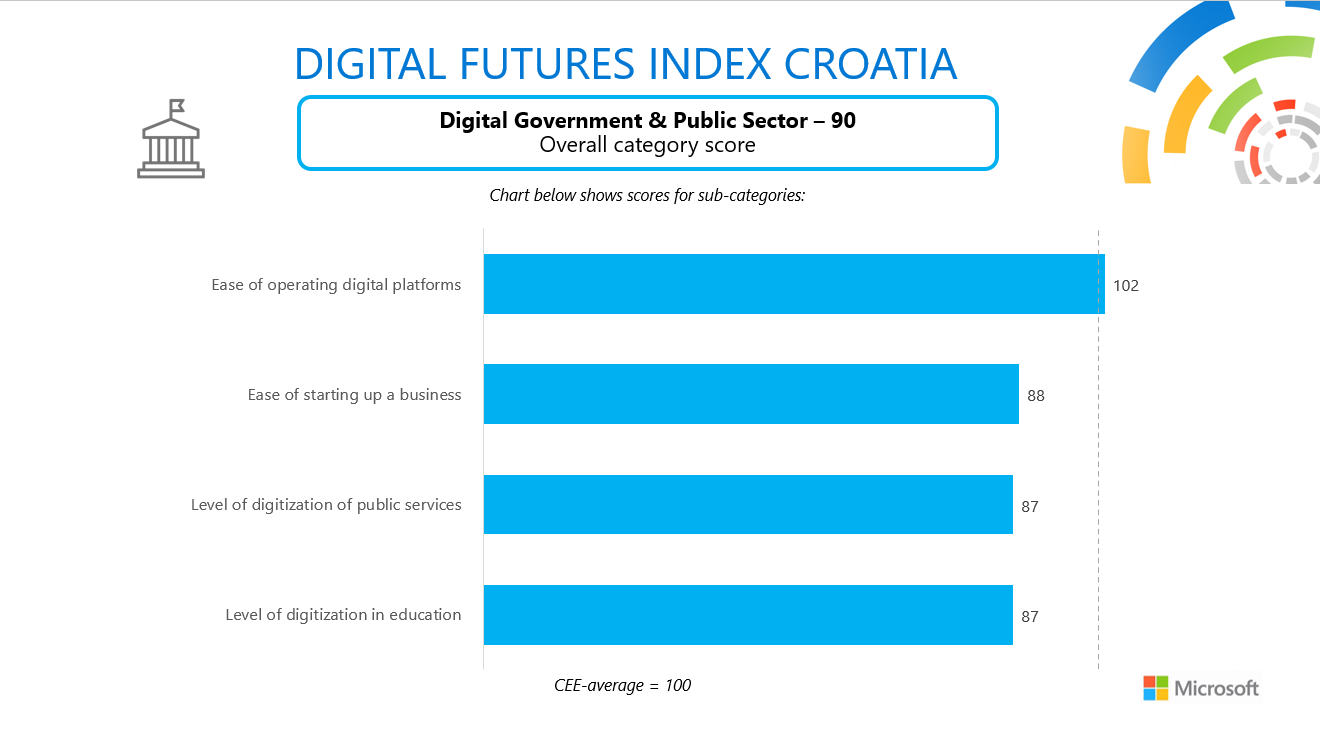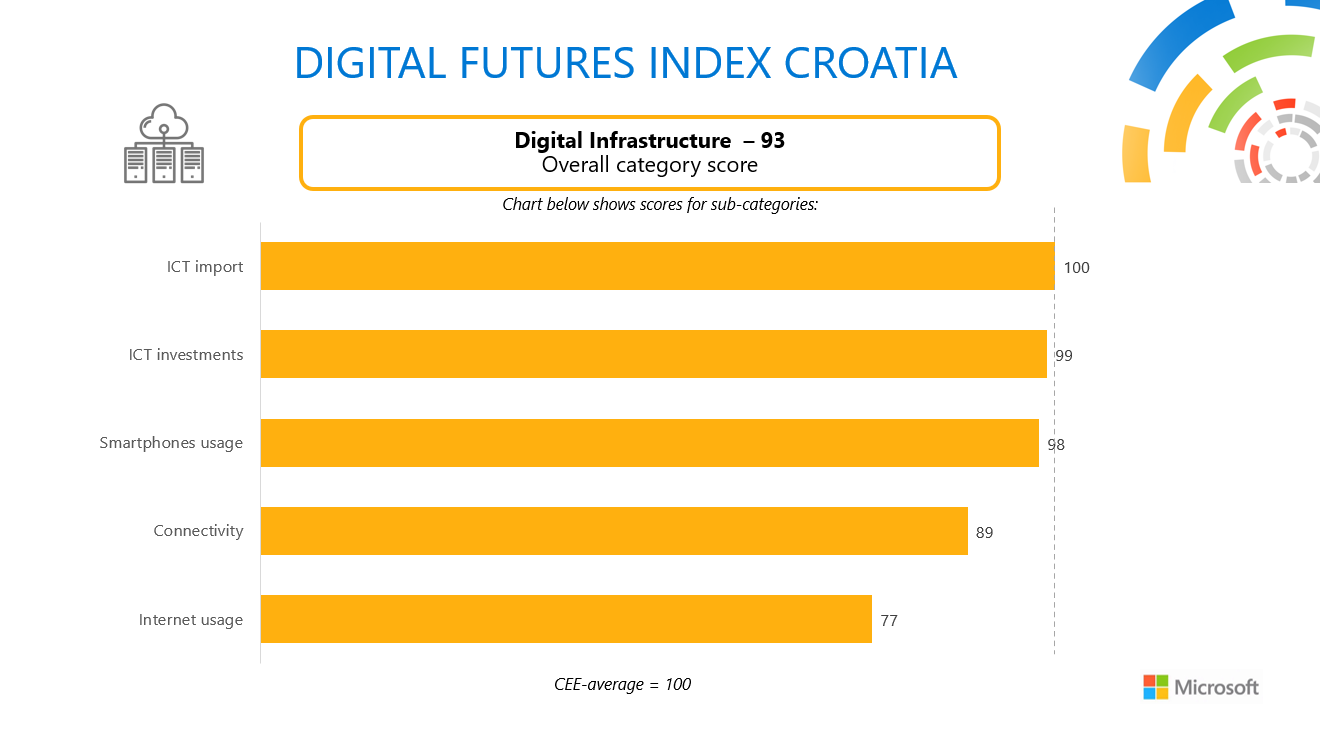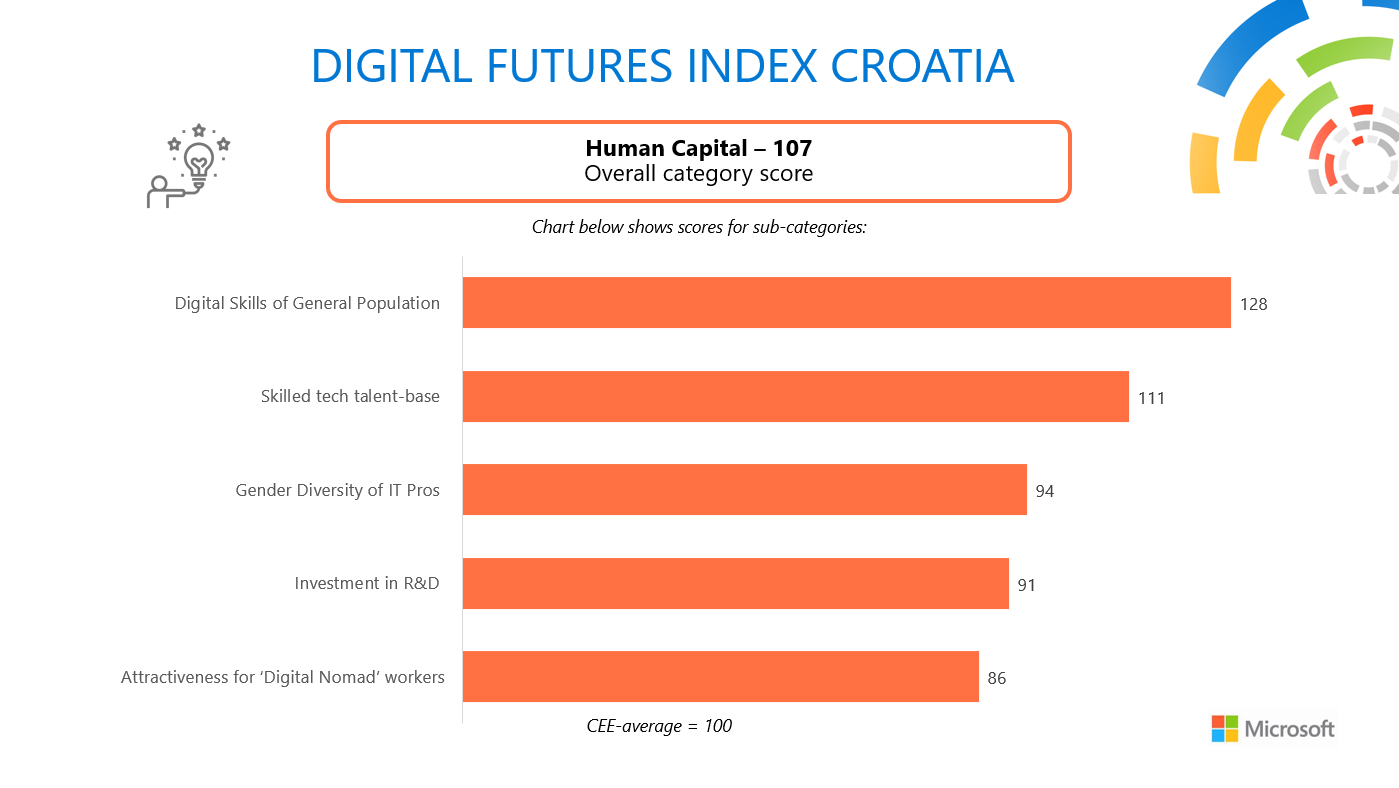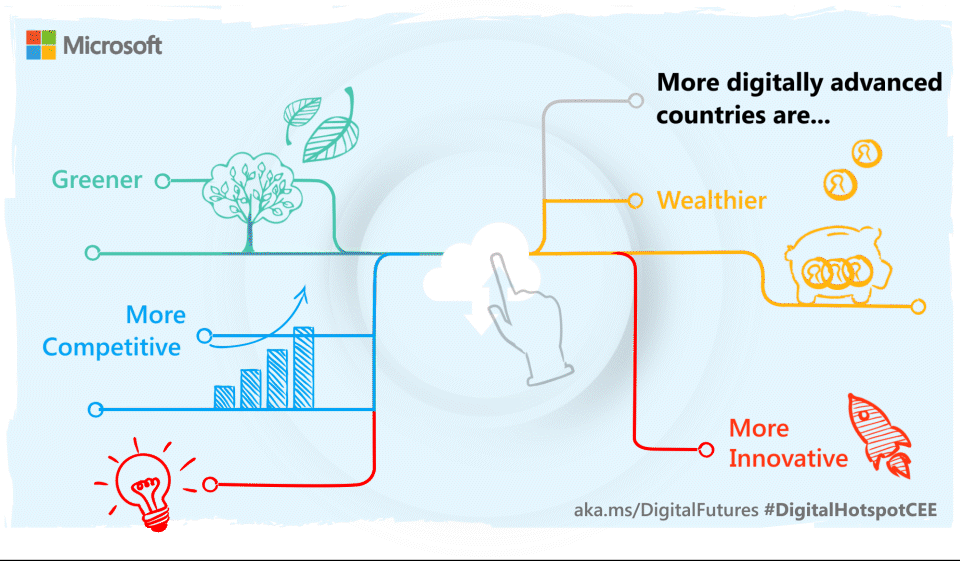Croatia has achieved outstanding results in the field of talents and skills – 48% of the young population ranging from 16 to 29 has digital skills above average compared to their peers in Central and Eastern European countries. However, there is a lot of room for growth in the field of public services digitalization.
Microsoft has created Digital Futures Index and analyzed the digitalization level of 16 European countries, Croatia being among them. The Index provides data on the current digitalization of a country and detects the most prosperous areas but also the fields where there is more work to be done to accelerate the process of digital transformation.
Digitalization was analyzed through 5 digital development categories: Digital Business, Digital Government and Public Sector, Digital Infrastructure, Digital Sector, and Human Capital. Croatia’s total digital development level is 91, which is 9 percent below the average for the Eastern and Central European countries (100 is the number of points defined as the average for Central and Eastern Europe). Croatia is highly ranked when it comes to talents, and the digital skill level among the general population is also prominent. The best results are achieved in the Human Capital category, which is strongly related to more competitive innovation, productivity, and salaries. The results in all the other categories were also close to the average for the Eastern and Central European countries.
“We’ve created Digital Futures Index to help decision makers to accelerate digital transformation of the country. Our research has shown that digitally advanced countries are greener, wealthier, more innovative, and more competitive. We in Microsoft believe that Croatia has strong potential and all prerequisites for becoming the digital hub of this part of Europe, which will base its economic development on innovation and modern technologies, such as artificial intelligence,” said Tatjana Skoko, the director for Microsoft Croatia.
The results of the Digital Futures Index for Croatia as per categories, in reference to the average in Central and Eastern Europe (100 marks the average)
In the Digital Business category, Croatia scored 84 points, 16 percent below the average. The data show that digital transformation acceleration and competitiveness increase will be made possible by more substantial investments of Croatian companies in the Cloud and advanced digital technologies such as artificial intelligence.

In the Digital Government and public sector category, Croatia gained 90 points. The results show that digital services are used in large quantities; however, the key opportunity lies in digitalizing public services.

In the Digital Infrastructure category, Croatia got 93 points, and a considerable discrepancy is seen in the results of the average speed of dedicated broadband access (71) and the average mobile Internet speed (131).

In the Digital sector category, the country scored 87 points. It is visible from the digital economy of scale that the ICT sector contributes enormously to GDP; therefore, Croatia outranks the average in terms of newly established companies.

The best results were seen in the Human Capital category – 107 points. Croatia has an excellent score in the skills and talents arena, which is strongly correlated with greater innovation, competitiveness, productivity, and salaries in all segments. The country also outperforms all the countries participating in the Index in terms of the digital skill level of the young population aged from 16 to 19 because its result is 48 percent above the average for Central and Eastern Europe.

To become a digital society, we must dedicate our attention to the following areas: development and progress of digital skills of people of all ages, stimulating small and medium enterprises to digitally transform, and public services digitalization. Accepting hybrid working culture and work flexibility will make employees more productive and innovative, and the need for investment in IT experts is also crucial.
Digital Futures Index results are presented in PowerBI and show digitalization levels for Croatia, the Czech Republic, Estonia, Greece, Hungary, Malta, Poland, Romania, Russia, Serbia, and Slovenia. The Index also includes the countries that are considered front-runners in digitalization – Denmark, the Netherlands, and Sweden – and Portugal, which is in “digital rise”, to obtain additional data for comparison. The model includes 55 various data parameters organized in categories for easier modeling and data navigation. The data have been gathered from relevant public sources, including the European Commission, UNESCO, World Bank, Eurostat, OECD, Digital Nomad Index, UN, WTO, European Investment Bank, and Eurofound.
Microsoft remains committed to its mission to empower every person on the planet to achieve more.





